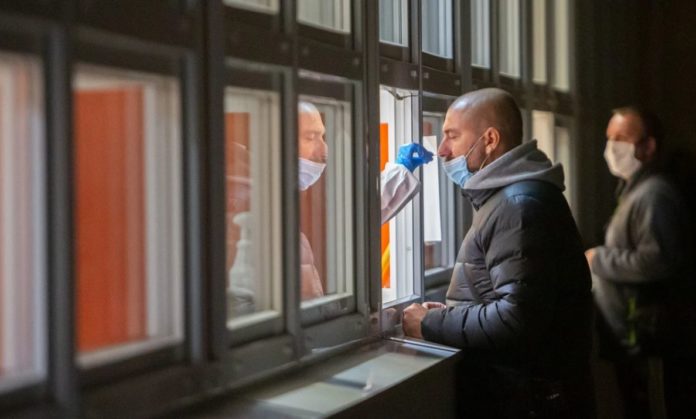The results suggest that COVID-19 may have reached the United States as early as December 2019, earlier than was initially believed
A retrospective study of blood samples from the U.S. residents collected in December 2019 showed that some of them had COVID-19 antibodies before China notified WHO of the new coronavirus.
Chinese authorities first reported mysterious cases of pneumonia from Wuhan on December 31, 2019. Later, it turned out that it was caused by the novel coronavirus SARS-CoV-2 and the first patient hospitalized in Wuhan had still been registered on December 1, 2019, and there are even reports of infections in China in November of last year. In the US, the first confirmed case of COVID-19 was registered on January 20, 2020, the infected was a resident of Washington who had just arrived from China.
However, a new study from the US Centers for Disease Control and Prevention (CDC), published in Clinical Infectious Diseases, showed that SARS-CoV-2 had appeared on the territory of the North American country even before China reported to the World Health Organization about the new coronavirus.
Scientists analyzed more than 7,300 blood donor samples collected by the American Red Cross in nine states between December 13, 2019, and January 17, 2020.
According to the study, 106 samples tested positive for antibodies against SARS-CoV-2.
The authors conducted additional tests to eliminate the cross-reactivity of antibodies against other viruses and found that the detected antibodies were specific for SARS-CoV-2.
Even taking into account the possible false positives of the tests, it can be said with certainty that at the beginning of December last year, the virus was already in the United States, the scientists note.
“The results suggest that COVID-19 may have reached the United States as early as December 2019, earlier than was initially believed”
the authors write.
At the same time, the presence of antibodies in the blood does not indicate that the person had been sick, but only had contact with the virus in the past.
The authors also note that the study does not allow determining where and when the antibody carriers were infected with the coronavirus.
Retrospective studies previously conducted in France and Italy also found antibodies against SARS-CoV-2 in blood samples from residents of these countries collected in early December 2019.
Scientists plan to continue research and contact people whose blood showed antibodies to see if they travelled in late 2019, particularly to China, and whether they had symptoms similar to those of COVID-19.
